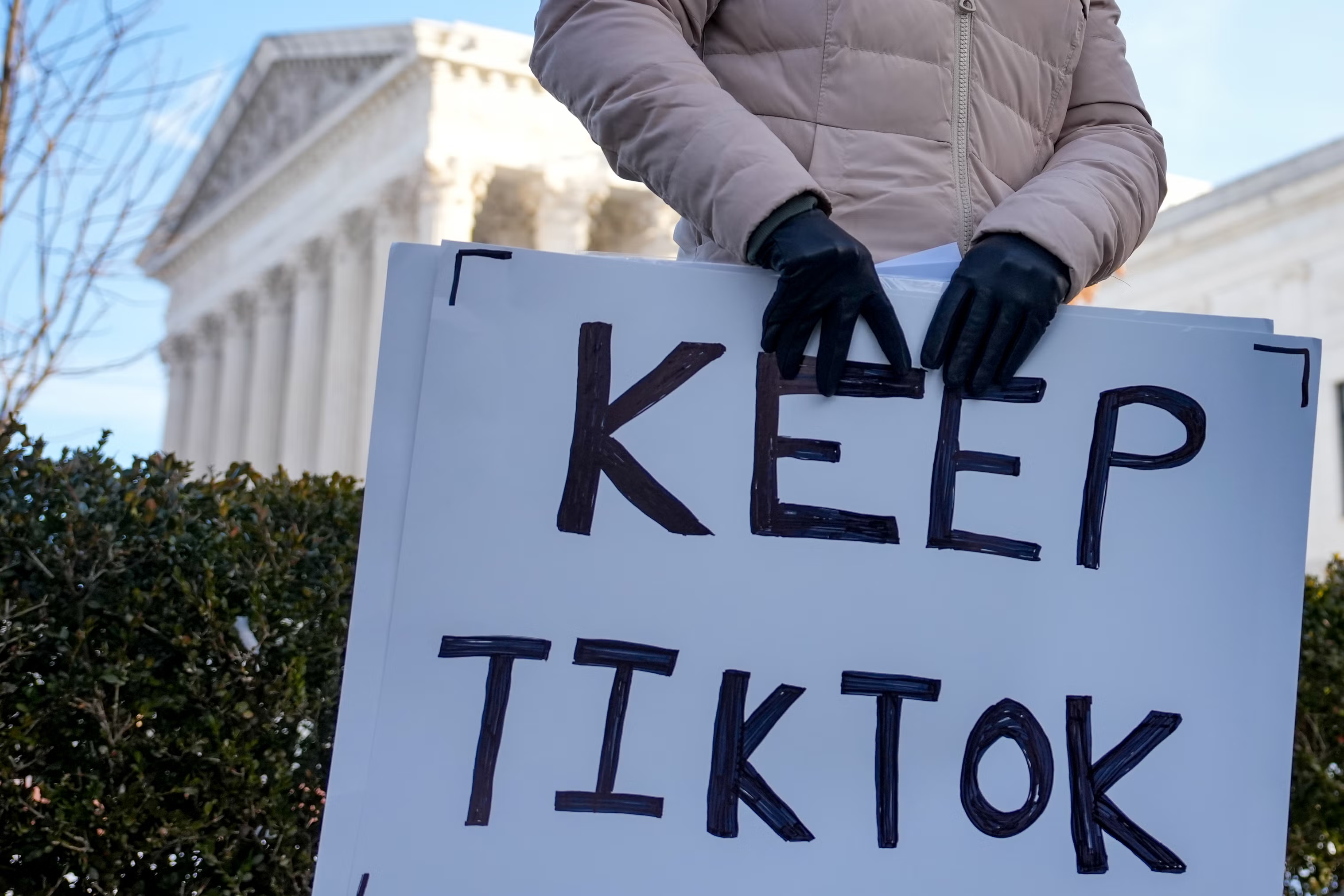Table of Contents
The debate over whether TikTok should be banned in the US is taking center stage Supreme Court hears arguments from both sides. The case highlights the tension between national security concerns and the protection of freedom of expression, with judges examining the potential risks posed by TikTok’s Chinese parent company, ByteDance. Central to the discussion is the question: should TikTok, a platform used by more than 170 million Americans, be forced to divest ByteDance or should there be a nationwide ban?
This legal battle stems from a law passed with bipartisan support that aims to allay fears about the Chinese government’s influence over TikTok’s activities. Critics claim the app could be used to spy on Americans or manipulate content for covert influence operations. Opponents of the ban, however, cite First Amendment concerns, arguing that restricting access to TikTok undermines free speech. The Supreme Court’s ruling could have far-reaching consequences for both digital freedom and national security.
Here’s everything we know about the US TikTok ban…
National security concerns behind the TikTok ban
A major point of contention in the case revolves around national security. The US government has long raised concerns about TikTok’s ability to collect vast amounts of user data and the possibility of this information falling into the hands of the Chinese government. During the hearing, conservative Justice said Brett Kavanaugh highlighted the long-term risks, including the potential to use data to manipulate or blackmail future generations of Americans in sensitive government positions.
Advocate General Elizabeth Prelogarrepresenting the Biden administration, argued that TikTok’s data collection capabilities pose a serious threat. She emphasized that the Chinese government could weaponize the app to achieve its geopolitical goals, using it for espionage, recruitment or intimidation. Prelogar also pointed to a “long tradition” of limiting foreign control over critical communications channels as a precedent for the proposed action against TikTok.
First Amendment and Free Speech Concerns
On the other side of the debate, the legal representatives of TikTok and ByteDance claim that the ban is aimed at freedom of expression. Noel Franciscoan attorney for TikTok, stated that the platform is one of the most popular tools for Americans to express themselves. Shutting it down would effectively silence millions of users and infringe on their First Amendment rights.
Liberal justice Elena Kagan raised questions about whether the law’s content-based rationale reflects Cold War fears of communist propaganda. She noted that concerns about content manipulation by foreign governments reflect historic efforts to suppress speech seen as a threat to national security. Francisco argued that even if TikTok’s parent company, ByteDance, has ties to China, the First Amendment protects the app’s right to operate and users’ rights to access its content.
The deliberations of the Supreme Court

The justices appeared divided, balancing between the need to protect national security and the importance of upholding constitutional rights. Chief Justice John Roberts wondered whether the court could ignore ByteDance’s obligation to comply with Chinese intelligence laws, while Justice Samuel Alito proposed a temporary administrative stay to allow further consideration.
The timeline of the case adds another layer of complexity. If the law is upheld, TikTok would have to divest ByteDans by January 19, 2025, otherwise a nationwide ban will be imposed. Francisco warned that such a move could lead to the app being shut down, leaving millions of users unable to access the platform.
Wider implications of the TikTok ban in the US
The case comes against the backdrop of rising tensions between the US and China, with TikTok caught in the crossfire. If the court upholds the law, it could set a precedent for future actions against foreign-owned platforms operating in the US. This has led many to wonder whether the TikTok ban in the US is a necessary step to ensure national security or an overstep that endangers freedom of expression.
For now, TikTok’s fate hangs in the balance. As the justices consider it, the outcome could reshape the landscape of digital platforms in the U.S. and impact how the country addresses threats from foreign-owned technology.
Conclusion

The Supreme Court’s decision on whether TikTok will be banned in the US marks a pivotal moment at the intersection of technology, national security and freedom of expression. With arguments from both sides underscoring the stakes, the ruling could have profound implications for users, the tech industry and US-China relations. Whether TikTok will remain a platform for millions of Americans or become the latest casualty in geopolitical tensions remains to be seen.
For now, the question on everyone’s mind is clear: is TikTok banned in the US? Only time and the Supreme Court’s final ruling will tell.
Featured image: Kent Nishimura
Follow us on Instagram for the latest news in fashion, lifestyle and culture @StyleRave_
—Read also

